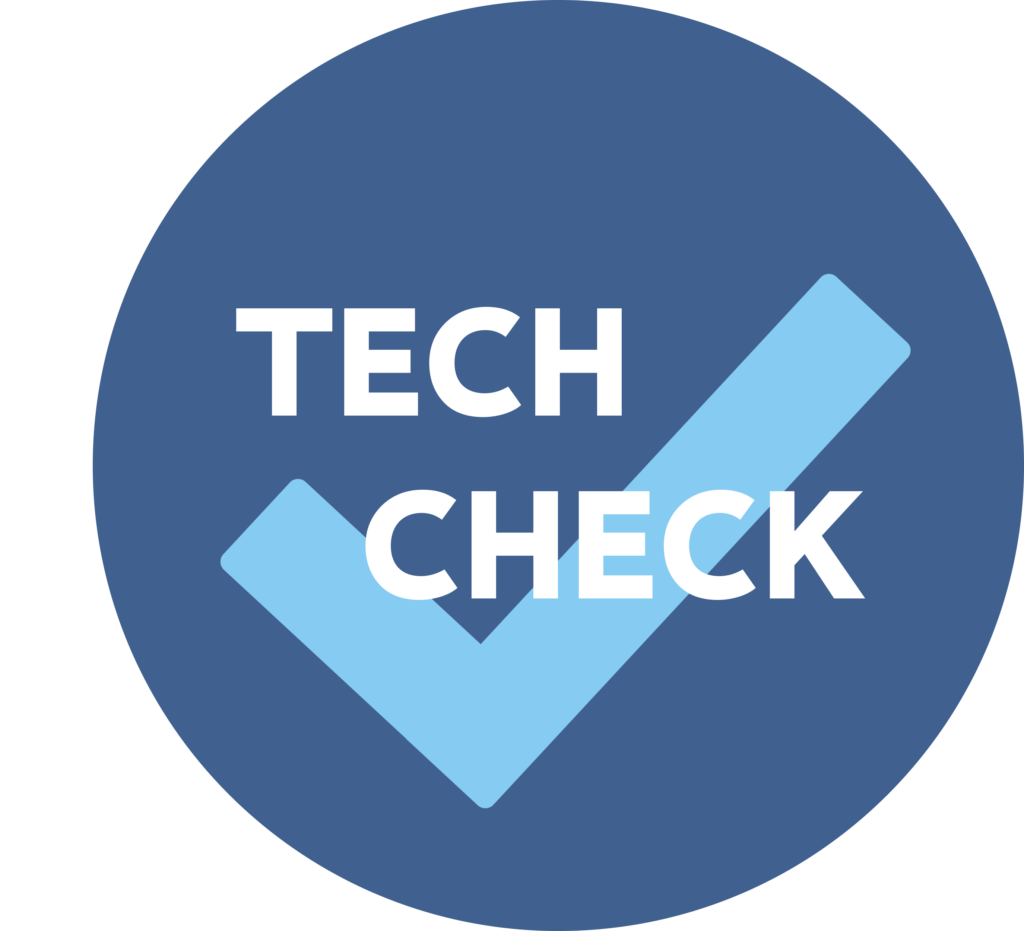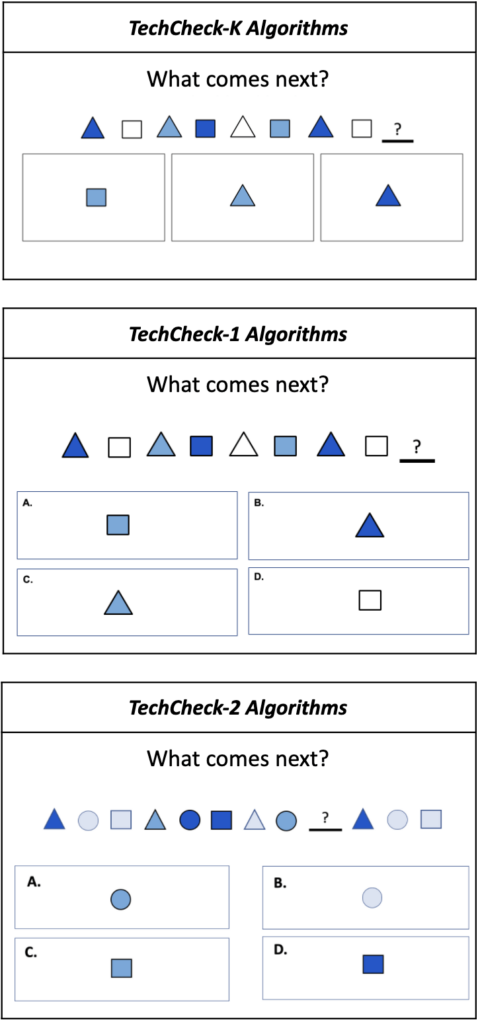
TechCheck Overview
TechCheck (Relkin, et al., 2020; Relkin, de Ruiter, & Bers 2021; Relkin, 2021, Relkin, Johnson, Bers, 2023) is a validated unplugged assessment of Computational Thinking (CT) designed for children grades K-3 (ages 5-9). It presents children with engaging puzzle-like challenges that are analogous to those that arise in the course of computer programming but do not require coding experience to complete. It consists of 15 multiple-choice challenges that probe six domains of CT described by Bers’ (2018) as developmentally appropriate for young children: algorithms, modularity, control structures, representation, hardware/software, and debugging. The assessment can be administered to individuals, whole classrooms, or groups, either online or in person, in an average of 13 minutes. TechCheck has been successfully administered cross-sectionally and longitudinally. The assessment has received excellent rater feedback on its ease of administration, engagement of children, and simplicity of scoring. To read more, please see our Publications page.
There are three versions of TechCheck:
- TechCheck-K is best for children 5-6 years old (kindergarten) .
- TechCheck-1 is best for children 6-7 years old (first grade).
- TechCheck-2 is best for children 7-9 years old (second & third grade).
Sample Items
This is an example of a type of question found in TechCheck. Sample Algorithms/Missing Symbol Series questions for kindergarteners (TechCheck-K), first graders (TechCheck-1), and second graders (TechCheck-2) are shown below. Please request TechCheck and complete the certification survey for access to the full instruments.

FAQs
What is an “unplugged” assessment of Computational Thinking?
Unplugged activities typically involve puzzles, games and exercises that exemplify CS concepts, skills, and practices without requiring knowledge of coding or the use of computers. TechCheck is considered an “unplugged” assessment as the assessment could be administered on a computer or other technological devices but will work just as well with a pencil and paper.
How can TechCheck be administered?
A proctor is required to read questions and oversee administration, which can usually be completed in an average of 13 minutes. Pencil and paper or a computerized platform can be used to record responses.
How is TechCheck scored?
TechCheck is easily scored as each correct answer gets 1 point for a total of 15 possible points. There are two TechCheck practice questions which are not included in the total score.
Has TechCheck been translated into other languages besides English?
We have received translations of TechCheck in languages including Turkish, Spanish, Hebrew, traditional Chinese, and simplified Chinese. These translations can be accessed on the downloads page after training and certification are complete.
Can I give the assessment to children outside of the USA and can I translate TechCheck into my own language?
Yes. Prior to implementation, we recommend that you review each question to make sure that they are culturally appropriate for children in your country. In addition, if you translate the assessment we would sincerely appreciate receiving a copy of the translation. Please feel free to send the translation to our team at devtechresearch@bc.edu.
Can I give TechCheck to students that are not in the previously studied age group (5-9 years)?
We have not yet validated the assessment for children younger than 5 or older than 9. Thus, we cannot guarantee that the assessment will be developmentally appropriate for other age groups.
I am not a researcher or educator. Can I still receive a copy of the TechCheck assessments?
TechCheck is currently only freely available for researchers and educators. However, if you are a parent or commercial company interested in receiving the assessment, please make a request and/or email us at devtechresearch@bc.edu to inquire.
Is it okay if I modify the questions, prompts, and/or the administration?
Yes. However, steps for re-validation may need to be undergone if changes to the assessment are made. Additionally, please still use the provided citation(s) to reference our work if you decide to publish your own work.
Need help? Please email devtechresearch@bc.edu.
